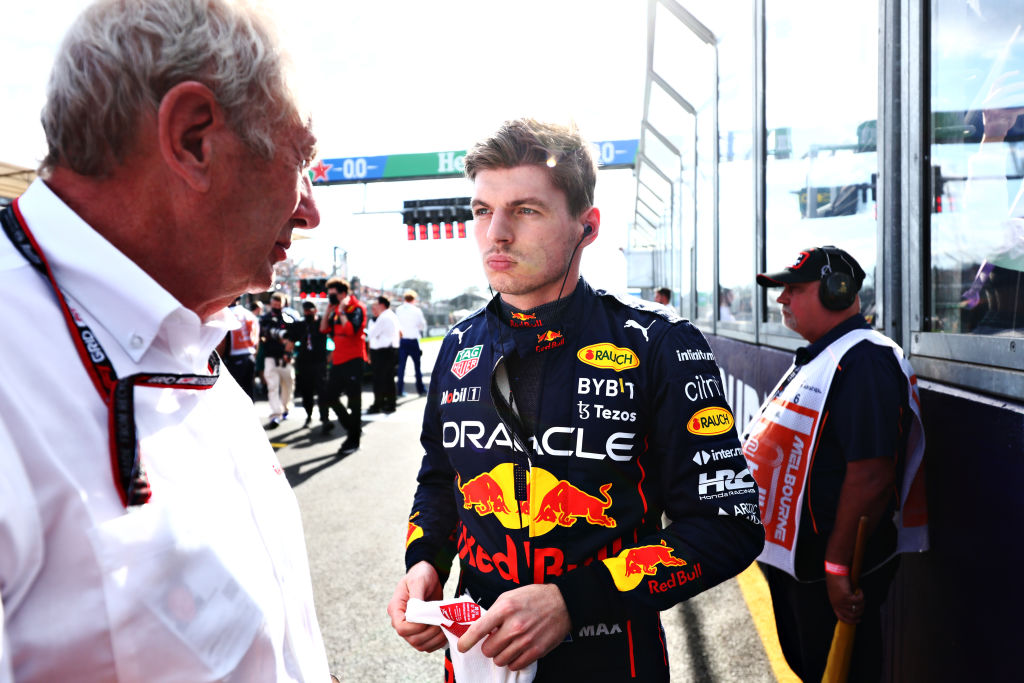Ed Warner: Docuseries triumph may drive wedge between media and sport

“Please please please please just go away!” The letter writer signed off with his PS in green ink, only months into my stint as chair of UK Athletics in the days before tweets were a thing. I wish I’d kept it, the only time I’ve seen green ink scrawled in cliched anger.
Sports leaders are bombarded by the disgruntled. Insecurity and uncertainty are only a nervous, image-conscious reaction away from an article, online post, email or – rarely these days – hand-addressed envelope. Too often, a bunker mentality in the face of criticism proves the undoing of reputations. That or misguided attempts to craft an image that doesn’t stand up to scrutiny.
I recently led a course on governance to a cohort of sports professionals aspiring to become chief executives. As I constructed the skeleton of the two days of discussions, adding on the flesh of real-life case studies, it became abundantly clear to me that communication – good and bad – lay at the heart of each of the crises I’d chosen as examples.
The bullying of British Equestrian’s CEO from office, allegations of systemic racism in cricket, my own struggle to address the doping allegations swirling around Alberto Salazar when he was coaching Britain’s Mo Farah. And British Cycling’s multiple travails.
As it happens, British Cycling has executed one of two recent screeching U-turns that illustrate the perils of being tin-eared. Theirs was an about-face on transgender eligibility for domestic competitions. The other was the International Paralympic Committee’s 24-hour climbdown from its ivory tower on the question of Russia’s participation in Beijing 2022. In both cases the ruling bodies underestimated the traction generated by contrary views circulating widely within their membership.
I see presidents, chairs and CEOs in sport seeking to inoculate themselves from criticism by overstaffing their PR teams and, too often, then hiding from direct contact with the media. Too easy that way to become out of touch, misunderstood, and distinctly lacking in goodwill cookies in the cookie jar when a crisis hits – as one inevitably will in the world of sports governance.
In my experience, journalists will give you a kicking if you deserve it, but they may just pause for breath to reflect on your side of the story if you’ve been prepared to commune with them during better times. After all, they’ve only got a job to do, and their column inches weave the tapestry of a sport’s story that in turn sells tickets. No such thing as entirely bad publicity – just ask those small sports that can get no publicity at all.
The Netflixification of sport is creating a whole new dynamic between the media and those who own or run sporting franchises. Max Verstappen’s refusal to be interviewed by Drive to Survive simply underlines what is already well understood: that the fly-on-the-wall series is carefully crafted by all parties to confect drama in order to sell the F1 brand.
Verstappen’s ability to say no, in spite of being an employee of the Red Bull team, is a reminder of the ever-increasing power of athletes in the communications battle. Direct access to fans via social media (whether authentic or instead carefully crafted by their own PR teams) is a threat to mainstream media and their employers alike.
It would be easy to deride the control freakery underlying the Drive/F1 collaboration, but there is a risk that its success will drive a broader wedge between the media, athletes and sports’ leaders. The ultimate losers are all those with a stake in sports being not only well run but well understood. There will be casualties along the way among those leaders who hide.
As to my green ink correspondent, he was kind enough to type his landline number at the top of his letter. So I picked up the phone. Turns out that he’d never expected a reply and probably rather regretted being only a phone call away. I’ve carried the experience as a guiding principle ever since.
Broadfield of view
Crawley Town is the nearest football league club to my home. I skirt within a mile of the People’s Pension Stadium in Broadfield on my drive north out of West Sussex to watch Crystal Palace. The club is bang in the middle of League Two. Average attendance at Broadfield approaches 2,200.
Last week Crawley was sold to an investment group aiming to harness Web3 thinking “to reimagine how professional sports teams are owned and operated.” Can’t say the new owners aren’t bold – they even claim promotion within two years is about a 50:50 shot.
Understanding Web3 is an oft-postponed item on my to-do list. As are DAOs and NFTs. I’m pleased to report that we do have the internet in West Sussex, but if my county is heading up in the sporting world then now must be the time to do more research.
I’ve only been inside Crawley’s stadium for a dull England Athletics membership roadshow a few years back. I’ll dig out the Red Devils’ fixture list. Wouldn’t want to miss what could prove an illuminating ride.
Raging against the machine
Russian sport isn’t going quietly. The Court of Arbitration for Sport in Lausanne has received a string of appeals against bans instigated after the invasion of Ukraine. Football will prove the highest profile case, simply because the most is at stake with the World Cup looming.
Already the shakiness of the legal ground is apparent. A small sport maybe, but a vote by the member nations of the International Luge Federation failed to muster the requisite two thirds majority required to kick out Russia, and the Federation’s own arbitration process overturned a ban on the country’s lugers.
This will be messy and – as I’ve said before – will require steely resolve.
Ed Warner is chair of GB Wheelchair Rugby and writes at sportinc.substack.com
